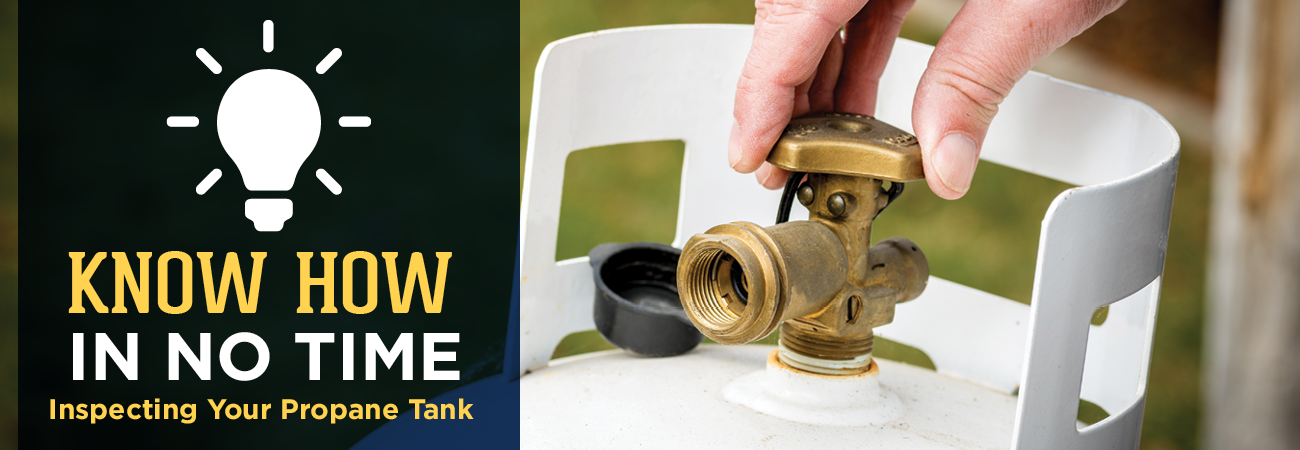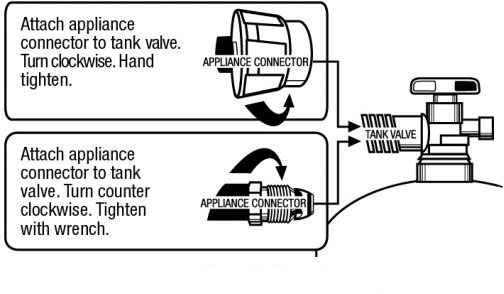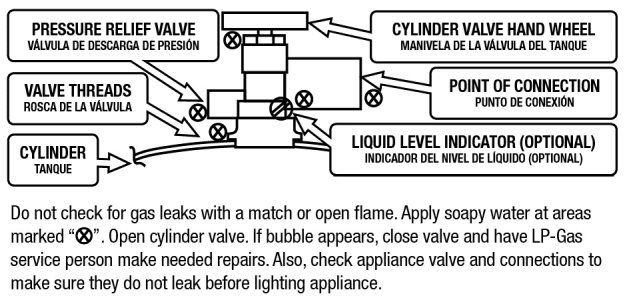
Get Connected
- Use only in compliance with applicable codes
- Read and follow appliance manufactures' instructions
- Turn off all valves on the appliance
- Light appliance(s) following manufacturers' instructions
- When appliance is not in use, keep tank valve closed

Check For Leaks
 <
<
Follow These Safety Tips
- Store and use tank only in an upright, vertical position.
- Do not store tanks in a building, garage, or enclosure.
- Never use or store a propane tank indoors.
- Know the odor of LP-Gas. Under certain circumstances, you may not be able to smell the odorant. If you hear, see or smell leaking LP-gas, immediately get everyone away from the tank and call the fire department.
- LP-Gas is heavier than air and can settle in low places while dissipating.
- Contact with liquid contents of tank will cause freeze burns to the skin.
- Do not allow children to tamper or play with tank.
- Never store a spare tank beneath a grill.
- When not connected for use, keep tank valve turned off.
- Do not try to repair a damaged tank or tank valve.
- Do not use, store, or transport tank where it would be exposed to high temperatures. Relief valve may open allowing a large amount of flammable gas to escape.
- Always transport your tank in a secure, well-ventilated location in your vehicle. Tank should be upright with valve turned off. Tank should be taken directly to and from place of use. Do not leave unattended in any vehicle.
- Do not use portable propane devices in enclosed or unventilated spaces, especially while sleeping, due to the risk of Carbon Monoxide poisoning, which can be fatal.
- Do not use portable propane heaters, stoves, or lanterns in tents, campers, truck caps, RVs, or other unventilated enclosures, especially while sleeping.
- Never store a tank in temperatures of 125 degrees F or more.
- Turn the cylinder valve handwheel ‘OFF’ before disconnecting the valve from any device. Failure to do so may allow LP Gas to escape and cause serious injury, property damage or death.
Need a new tank or a refill?
Know How In No Time
3/28 - 3/30 | The Novi Home & Garden Show |
4/10 - 4/19 | Easter Egg Hunt | Heart & Home • Mack Ave • 11:00am |
4/11 - 4/13 | Grand ReOpening Event • Novi |




